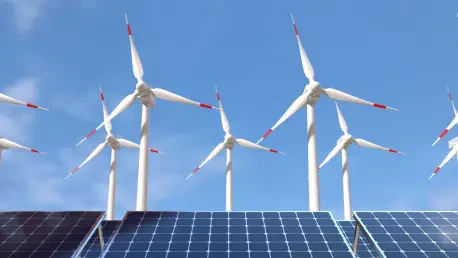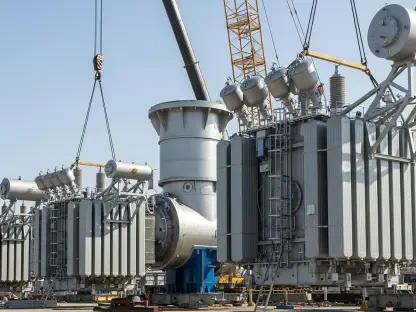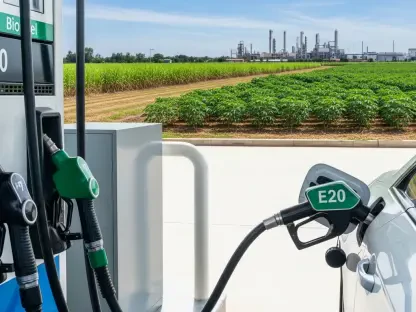Poland, historically reliant on coal for its energy production, is at a critical juncture as it endeavors to shift towards renewable energy sources. This transition is more than just an environmental imperative; it is deeply rooted in economic restructuring, social adaptation, and political recalibration. The country’s journey from being a coal titan to a burgeoning renewable energy advocate offers rich lessons for other nations facing similar energy challenges. These lessons are set against a backdrop of Poland’s socio-political history, where the shift not only impacts national policies but also affects the livelihoods of communities profoundly intertwined with the coal industry.
The Socio-Economic Impact of Coal Dependency
Historical Context of Poland’s Energy Economy
Poland’s extensive coal industry historically served as the backbone of its economy, especially in regions like Silesia. At its peak, the industry provided employment for nearly 400,000 individuals across approximately 70 mining facilities, embedding itself deeply into the socio-economic fabric. The sector was synonymous with economic stability and community vitality, fueling regional economies and fostering a sense of identity among the populace. Post-1990s, the nation underwent a seismic shift from a communist to a market economy, disrupting established systems and leading to the accelerated decline of coal mining activities. This period marked the onset of challenges, including unemployment due to mine closures, which sparked widespread social disarray, culminating in issues such as mental health deterioration among ex-miners.
The swift cessation of mining operations in the early transition phase left many communities grappling with the loss of a cultural and economic cornerstone. Without sufficient preparatory structures, regions experienced heightened social issues characterized by deteriorating communal ties and an uptick in substance-related challenges. Miners, once community pillars, found themselves marginalized in an emerging economic landscape that seemed to render their skills obsolete. This historical narrative underscores the necessity of fostering adaptive policy frameworks that ensure smoother transitions, minimizing the adverse socio-economic impacts witnessed during Poland’s initial energy sector shift.
Navigating Present Coal Dependencies
Despite historical setbacks, coal remains a significant component of Poland’s current energy matrix. As of 2024, the country derived 57% of its electricity from coal, highlighting the ongoing reliance on this fossil fuel. Making strides towards reducing this dependency, the government has set targets to drastically cut down coal production while aiming for full mine closures by 2049. Foundations and institutes focusing on economic restructuring continuously emphasize the importance of adhering to these timelines, cautioning against prolonging the inevitable phase-out of coal-centric energy policies. Predictions suggest a dramatic reduction in coal production, anticipated to drop to 23 million tonnes by 2030, signaling an urgent call for an overarching, coherent energy strategy.
The emphasis on clear strategic endeavors is paramount to ensure a seamless transition, both environmentally and economically. The strategies should encompass robust planning for energy diversification, fostering technological advancements, and capitalizing on alternative energy sources, such as wind and solar. Failure to timely implement these strategies could result in not only missed economic opportunities but also exacerbate Poland’s regulatory and environmental challenges.
Transition Strategies and Political Climate
Training Initiatives for Renewable Energy Growth
In addressing coal dependency, Poland envisions the renewable energy sector as a promising avenue for economic revitalization. Focused predominantly on the wind and solar industries, this sector anticipates remarkable growth, projecting employment opportunities for 300,000 individuals by 2030. Central to this strategic pivot is the concept of a “just transition,” which seeks to align economic prospects with social equity, ensuring that communities historically dependent on coal are not left out of this transformation. Training initiatives play a crucial role in this context, equipping former coal miners with the requisite skills to thrive in renewable energy industries, thus mitigating potential unemployment risks associated with the coal phase-out.
Community-centric dialogues remain an integral part of this transition framework. Stakeholders engage in discussions that address socio-economic anxieties stemming from mine closures, aiming to assuage fears regarding employment security and infrastructure changes. These dialogues are pivotal in fostering transparency and trust, providing assurance that the changes envisaged hold the promise of economic benefits and enhanced living standards. Moreover, the community inclusion approach serves as a model for securing widespread support and minimizing resistance, enabling Poland to move forward cohesively in its renewable journey.
Political Dynamics Shaping Energy Policies
Poland’s political landscape influences its energy policies significantly, with recent electoral processes impacting the pace and direction of its coal-to-renewables path. The entry of President Karol Nawrocki into the political arena underscores the tension between maintaining coal as part of the energy mix and embracing aggressive climate policies. Despite his support for coal, the country’s parliamentary structure ensures that decarbonization efforts remain largely unaffected, allowing progressive climate objectives to persist under broader legislative influence.
The role of the European Union emerges as a pivotal ally in Poland’s renewable transition. Through mechanisms such as the Just Transition fund, substantial resources are allocated to support green economy initiatives, particularly in regions previously dominated by coal. The EU’s involvement acts as a catalyst, facilitating regional development projects and fostering economic diversification. This partnership underscores the importance of multi-tiered governance and international cooperation in achieving sustainable energy transformation, with the EU’s backing reinforcing Poland’s commitment to fulfilling ambitious renewable targets.
Revitalization of Former Coal Regions
Transformative Opportunities and Success Narratives
Poland’s former coal regions present a fertile ground for creative redevelopment, transforming these landscapes into vibrant hubs for tourism and innovation. Noteworthy examples of this metamorphosis include the Silesian Museum in Katowice and the Guido mine in Zabrze, now repurposed into cultural and technological centers. These endeavors illustrate the potential for reimagining industrial spaces as venues for economic growth, cultural enrichment, and heritage preservation, spotlighting the opportunities that arise from well-planned transitions.
As the country pivots from coal, there is growing advocacy for recognizing the skilled labor rooted in mining communities. These skills, honed over decades, hold significant relevance in the burgeoning green sectors. By investing in skill transfer programs, Poland not only preserves the cultural heritage of its miners but also facilitates their integration into the workforce, contributing to a diversified economy. This approach underscores the broader potential inherent in transition strategies that acknowledge existing proficiencies within labor forces as valuable assets in the shift to renewable energy.
Community Empowerment and Sentiment Analysis
Empowering local communities is a cornerstone of Poland’s transition strategy, with efforts aimed at ensuring widespread acceptance and engagement in renewable ventures. Entities engaged in canvassing public sentiment, such as BoMiasto, employ tools like the Just Transition Barometer to gauge community perceptions on energy transitions. These assessments reveal prevalent concerns around energy costs, employment opportunities, and ecological impacts, providing a gauge on community readiness and areas requiring targeted intervention.
By addressing the expressed concerns, Poland can tailor its transition strategies to resonate with community priorities, bolstering the socio-economic stability such transitions necessitate. This proactive approach not only aids in minimizing resistance but also galvanizes community support, ensuring that the renewable energy strategies are inclusive, receptive, and aligned with population needs and aspirations. Such grassroots inclusion practices ultimately enhance the effectiveness and sustainability of Poland’s energy policy reforms.
Final Reflections and Future Considerations
Poland, a nation traditionally dependent on coal for energy, is now at a crucial turning point as it strives to embrace renewable energy sources. This shift goes beyond environmental concerns; it represents a significant transformation in economic structure, societal adaptation, and political landscape. Poland’s evolution from a major coal producer to a promoter of green energy provides valuable insights for other countries grappling with similar energy transitions. This move is set against Poland’s complex socio-political backdrop, where changing the energy paradigm not only influences national policies but also deeply impacts communities whose livelihoods are tightly linked to the coal sector.
The transition is significant because it encompasses multiple layers of change. Economically, Poland is working to reshape its industries and create new jobs in renewable sectors. Socially, communities that have relied on coal mining for generations are adjusting to new realities and opportunities. Politically, there is a recalibration in how energy policies are crafted, demanding engagement from various stakeholders to ensure a seamless transition. The challenge lies in balancing economic growth, social stability, and environmental sustainability, while maintaining the support of both the public and industry stakeholders. Poland’s experience offers valuable lessons for countries aiming to pivot to sustainable energy.









